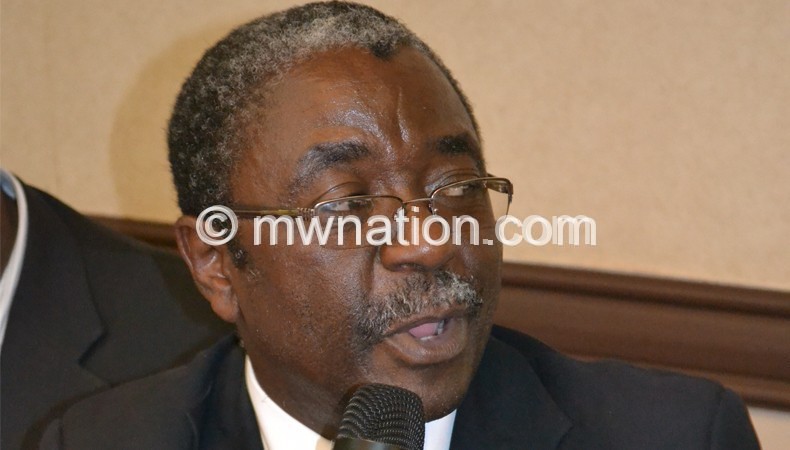Political scientists demand electoral reforms
Political scientists meeting in Zomba have urged political antagonists to speedily discuss their self-interests and pave the way for electoral law reforms to avoid a repeat of post-election spats witnessed since the May 21 Tripartite Elections.
The Political Science Association (PAS) on Thursday organised a conference in Zomba to debunk sticky issues, including the right to demonstrate, resurgent calls for a federal system of government and delayed reforms in electoral laws.

Dissatisfaction with the presidential polls in the May elections has birthed serial mass demonstrations.
The wave of protests and alienation is running concurrently with a case in which Malawi Congress Party (MCP) President Lazarus Chakwera and UTM’s Saulos Chilima want the High Court to quash Democratic Progressive Party (DPP) leader Peter Mutharika’s re-election and order a re-run.

PAS president Joseph Chunga saluted the courts for upholding the constitutional right to demonstrate in the wake of government overtures to curtail the protests and get conveners to pay for damages caused during marches.
However, he warned that the push to take down Jane Ansah from the helm of the Malawi Electoral Commission (MEC) could be symptomatic of graver discontent among the protesters.
He said: “Previously, people thought that if organisers tell marchers to come again tomorrow, there will be none. But, we continue to see large numbers taking to the streets.
“Essentially, demonstrations signal loss of trust in the conventional modes of participation and government’s performance. They show something is wrong and the protesters are telling those in power, ‘we would have expected you to take necessary steps without me taking to the streets or carrying banners’. This could be a critical time to reflect on processes that aren’t ticking or producing the desired results.
“We may think that the protesters are doing this because MEC didn’t run the elections well, but the cause stretches beyond what we read on their banners.”
Governing elites have mostly responded to the raging discontent with contempt, with Mutharika accusing opposition parties of clandestinely bankrolling the demonstrations convened by the Human Rights Defenders Coalition (HRDC) to usurp power from what he terms a legitimately elected government.
In his presentation, constitutional lawyer Edge Kanyongolo urged Malawians to look beyond the unfolding protests and court case.
He called for strategic thinking to re-energise the push for reforms in electoral laws, including the 50+1 system Parliament rejected without substantive debate in 2017. If the Bill passed, the country would have gone for a second-round unless Mutharika polled at least half of the valid votes in May.
MEC named Mutharika a winner with 38 percent of the votes, a count some commentators partly blamed for the current stand-off.
But Kanyongolo had a word for proponents of the two-legged electoral system: “It is not enough to stand on the podium, saying let’s have electoral reforms. We need to be strategic bearing in mind self-interests at play in our political context. We need to show how the system benefits everyone, including those who don’t want it. People don’t do things because it is good thing. There is always an agenda.
Professor emeritus Wiseman Chijere Chirwa, who sat on the Special Law Commission on the review of the country’s electoral laws, urged against a narrow view in terms of reshaping laws governing general elections.
“The commission had 19 items to consider, not just the 50+1 Bill which everyone talks about. We proposed not less than five bills and recommended that they should go to Parliament as a package, not just one,” he said.
According to Kanyongolo, political interests somewhat prevailed over the imperative to create room for credible, free and fair elections when MPs kicked out the 50+1 bill in December 2019.
“Law and politics are intertwined. The reason most of the proposed law reforms fail is not because they are technical but political,” he said.
The constitution law expert also warned politicians against abuse of the courts, saying: “Judiciarisation of politics produces politicisation of the judiciary, which is not good for rule of law.
Political analyst Makhumbo Munthali, a member of the HRDC, said in a presentation that there is a growing appetite for demonstrations and the unrests will worsen if key players remain indifferent.
“There is a need to turn the current wave of dissatisfaction into a positive shift in terms of law reform,” he said.
The calls come amid sticky negotiations set in motion by former president Bakili Muluzi and Public Affairs Committee in which the conflicting parties have hashed out no tangible deal yet.





